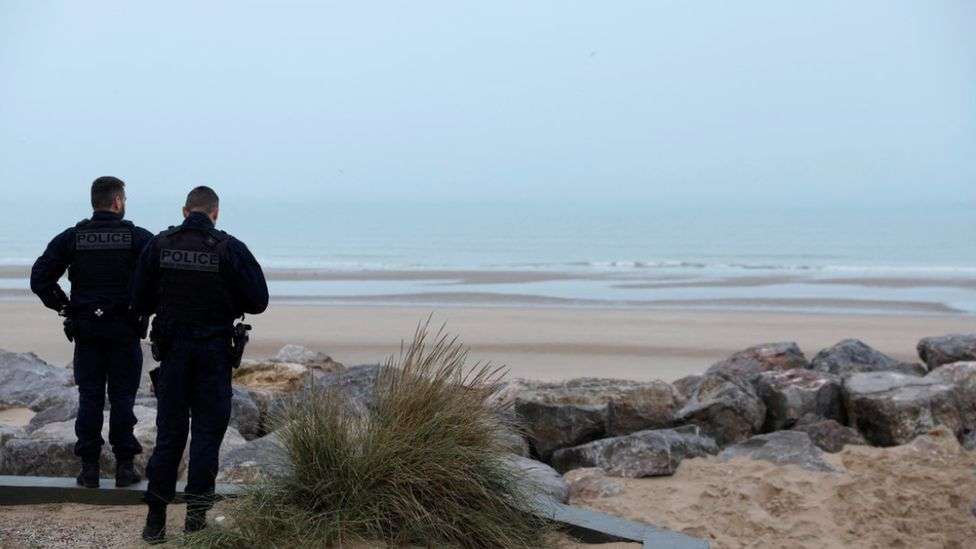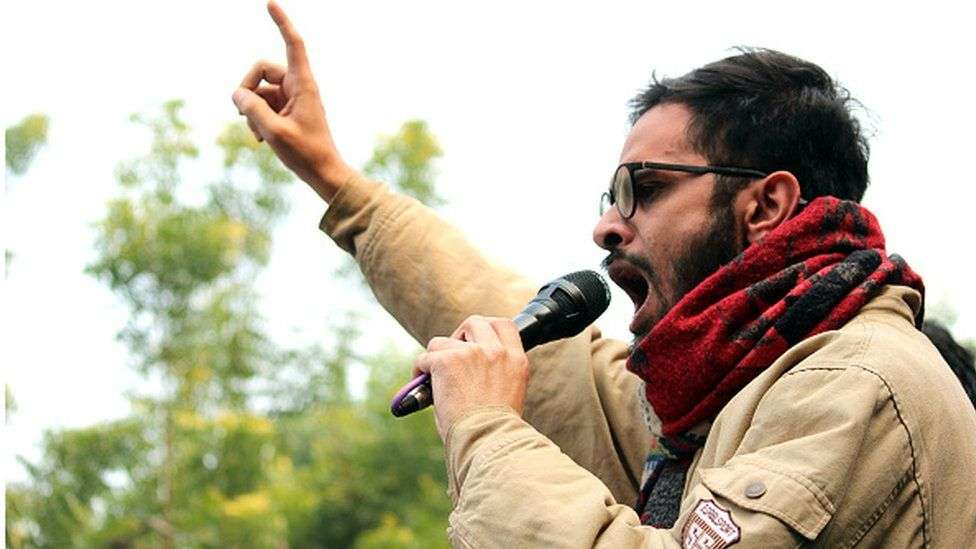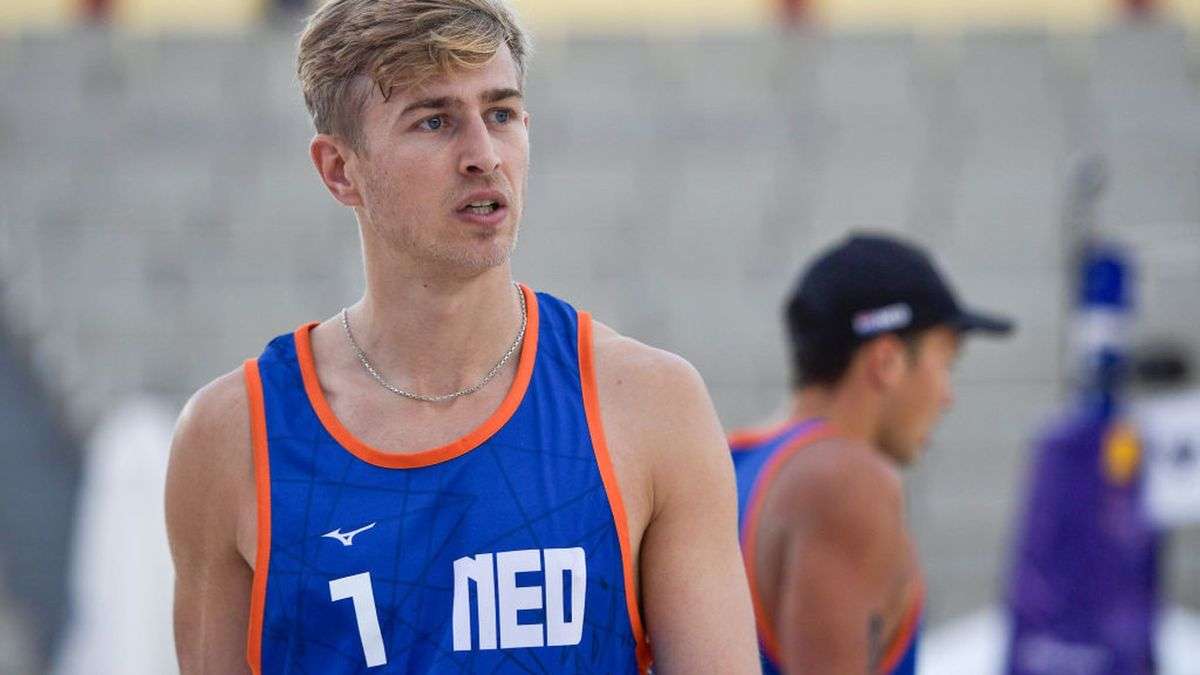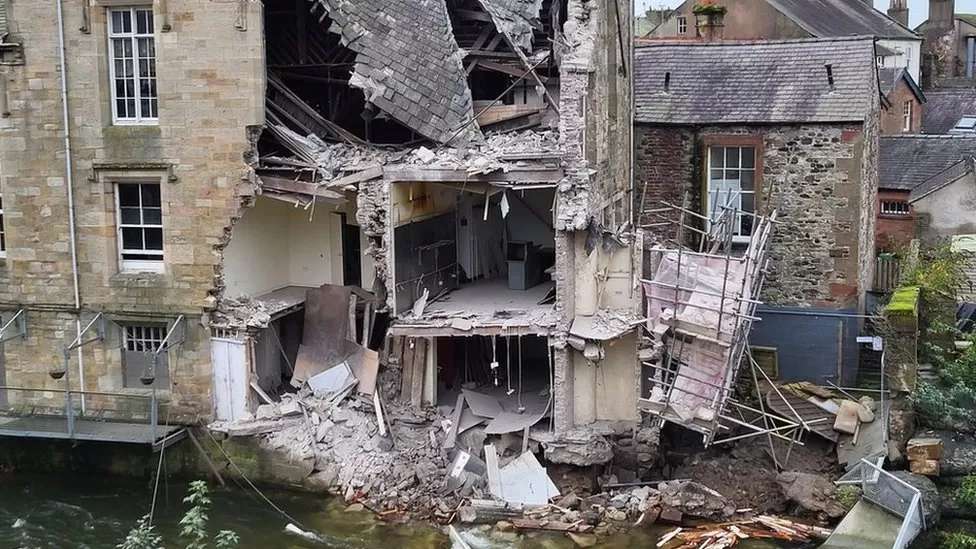French police have expressed alarm about a sharp rise in the number of deaths among people trying to cross the Channel in small boats.
Already this year nine people have drowned attempting the journey, compared with 12 for the whole of 2023.
The latest to die was a seven-year-old Iraqi girl, one week ago, when a smuggler's boat capsized on a French canal.
But a sharp debate is also emerging over how to explain, and who to blame, for the rising death toll.
French police say increasingly smuggling gangs are forcing migrants, year-round, into ever more crowded and unseaworthy boats.
But critics say that a more "militarised" coastline, bristling with new policing equipment paid for by the UK, is compelling people to take ever greater risks in their determination to cross the Channel.
In recent months, the small resort town of Wimereux, south of Calais, has emerged as a focal point for the smugglers, with hundreds of migrants from Iraq, Sudan, Vietnam and elsewhere, gathering on clear nights in the hope of a successful crossing.
"You can see the cameras, and the antenna," said Wimereux mayor Jean-Luc Dubaele, showing visitors new CCTV equipment installed on 12 poles. The cameras are all paid for as part of a three-year, £480m UK support programme that is a year old on Sunday.
"I'm convinced this will work. It's indispensable. Last night we had 200 migrants coming into town. We're targeting the smugglers, looking for car number plates at those places where they drop off their equipment," said Mr Dubaele, whose town is the first to be fitted with the new cameras.
Some of the CCTV footage will soon be screened, live, at a new police facility in the French city of Lille, where officers are already monitoring remote infra-red cameras scanning the region's ports and beaches.
"Much of this equipment is financed by Britain. It enables us to intervene more quickly, and more safely," said Mathilde Potel, the French police commissioner who heads efforts to tackle the migrant issue.
She said her teams were now able to identify and intercept boats and other equipment long before they reached the coast.
But Potel expressed concern about "worrying trends emerging this year".
She cited 40 confrontations on beaches so far this year between police and increasingly violent smugglers who have begun to supply migrants with "sticks and stones to attack our forces and prevent the boats from being intercepted".
"We have more hostility. So we are forced to use tear gas in order not to become victims ourselves," she said, showing a video on her phone of a recent encounter.
Potel acknowledged that the number of crossings so far this year was similar to 2023, but she said she was "most worried" that those crossings were becoming "more and more dangerous. Last year we had 12 deaths. In 2023 it is already nine."
Potel said the smugglers were increasingly supplying "extremely poor-quality boats, produced in China", which at least partly explained why almost 40% of crossing attempts failed.
"We are dealing with thugs, with people involved in organised crime and arms trafficking. Those responsible [for the deaths] are the smuggling networks that make these people take enormous risks and then make enormous profits for themselves," said Potel.
Louis-Xavier Thirode, a government official in charge of security for the whole of northern France, acknowledged that there was no quick fix to the migrant issue. Regardless of how many smugglers they arrest - 700 in the past three years - new gangs will emerge because "these crossings are very profitable", he says.
But he stressed that France had a duty to "prevent by all means those seeking to head to sea in risky conditions". The three-year funding deal with the UK, Thirode added, transformed efforts to clamp down on small-boat crossings.
Across the Channel, in London, the UK's Home Office said its co-operation with the French had already prevented a significant number of crossing attempts this year.
"The severity and brutality of the criminals facilitating these journeys, as we have seen this week with a seven-year-old girl losing her life, reinforces our commitment to disrupting the gangs and breaking their business model," said Charlie Eastaugh, who heads the Small Boats Operational Command.
But in Calais, local charities involved in assisting migrants in distress argue that it is wrong to lay all the blame for the deaths on the smuggling gangs.
"The presence of police officers on the beach, [the increased] militarisation, and the equipment does not mean that fewer crossings will happen. It's not a deterrent, but it is actually going to make it more dangerous," said Julie Hernandez from the Utopia 56 organisation.
She argued that migrants, often having already taken huge risks to cross the Mediterranean, were now so close to reaching the UK that they would willingly put themselves in even greater danger on the French coast.
In Wimereux, Mayor Jean-Luc Dubaele was also keen to put the British and French police efforts in a wider context.
"We can slow it down, but we can't stop the crossings. For me it's become my life, night and day, unfortunately," he said, stressing the widespread French belief that the only long-term solution is for Britain to regulate its jobs market far more strictly.
"Why do the migrants want to go to England? It's for work. The answer, as I see it, is to forbid migrants from working in England without an employment contract. If the English solve this problem, then we'll have taken a big step," said Dubaele.
And if that doesn't happen?
"It will continue," said the mayor, turning his head back towards the beach, the flat expanse of water, and the White Cliffs of Dover glinting, beguilingly, in the distance.








